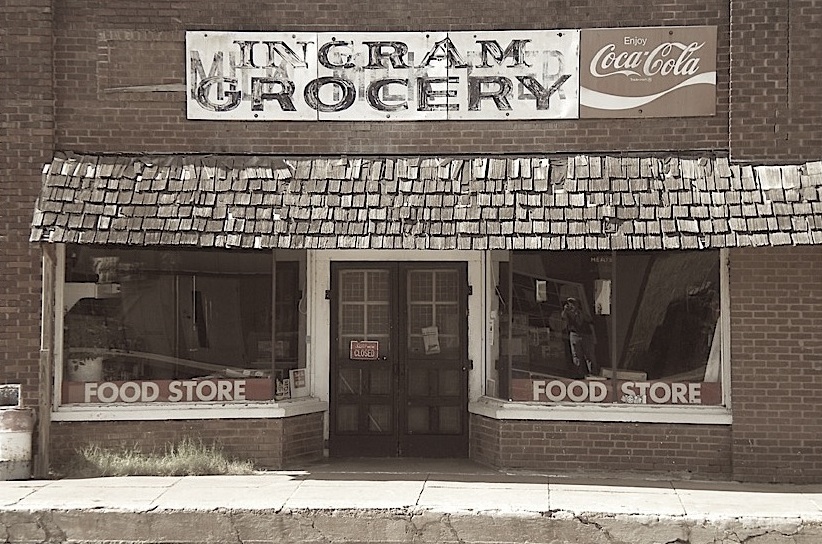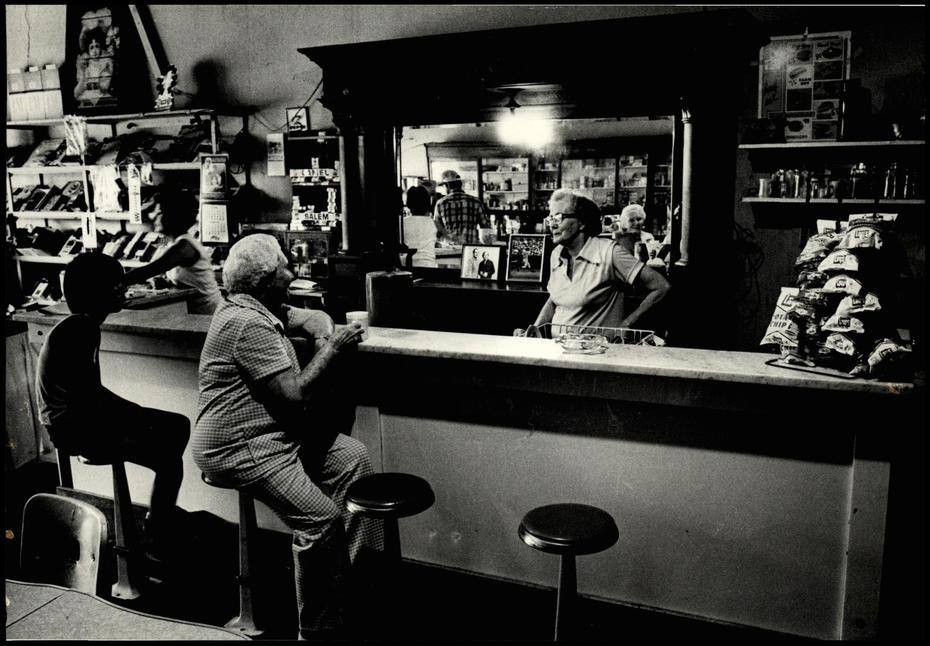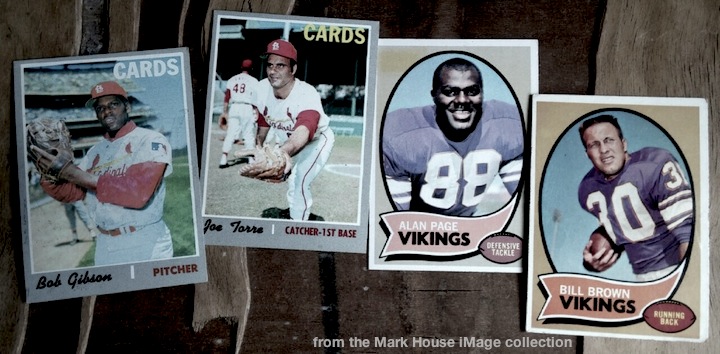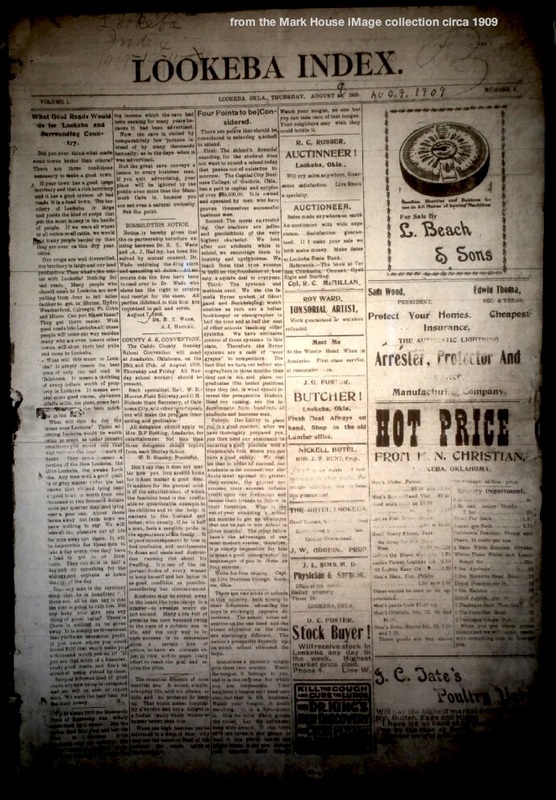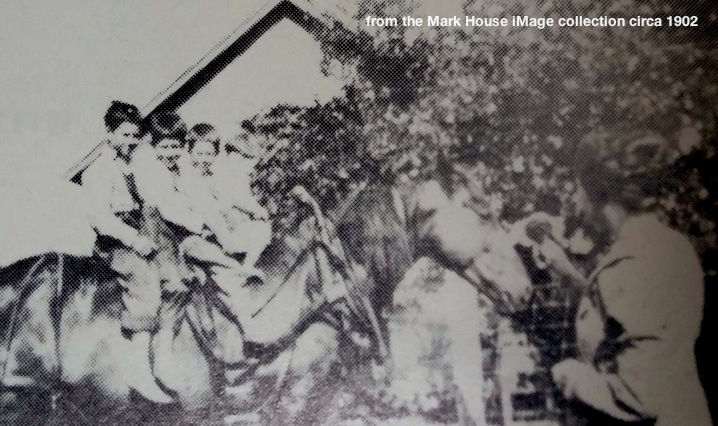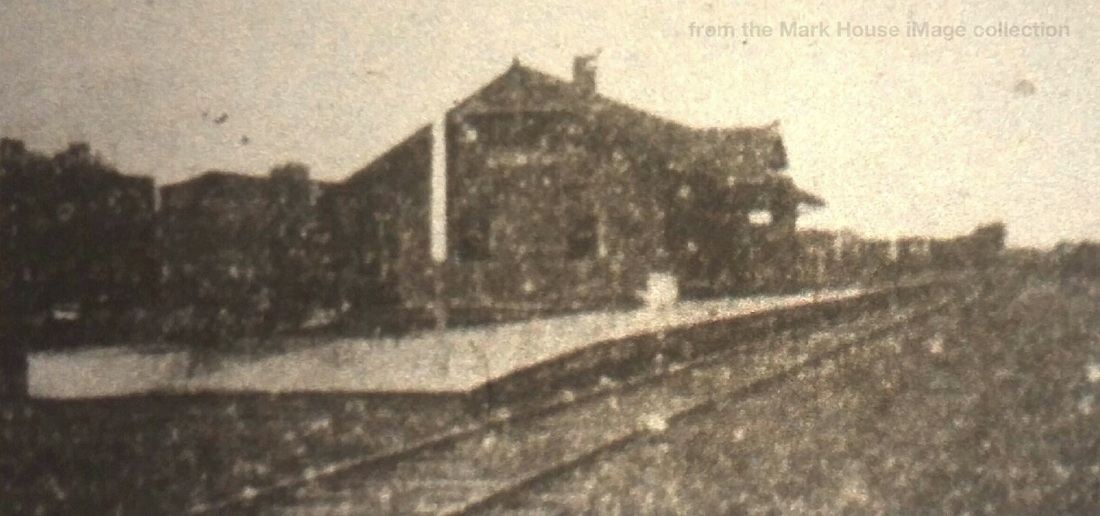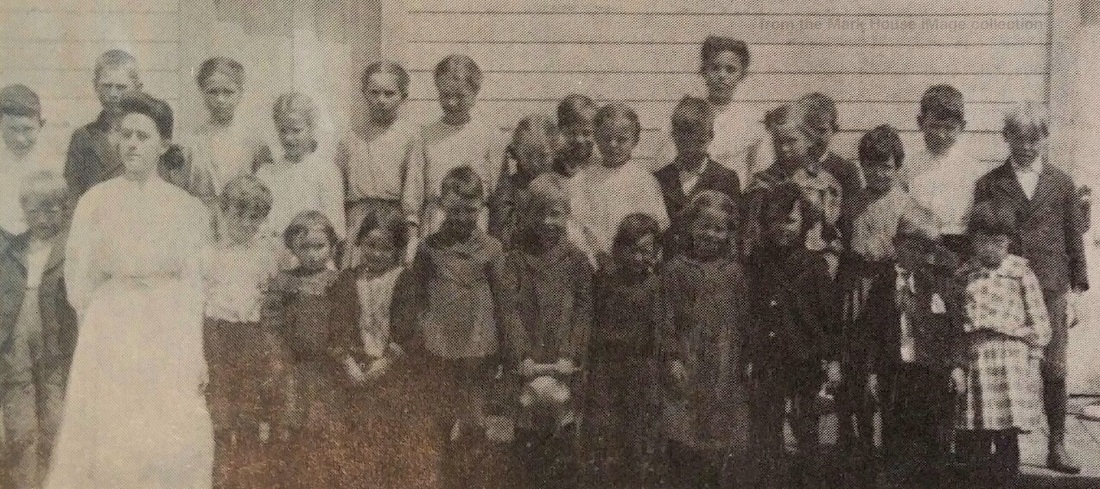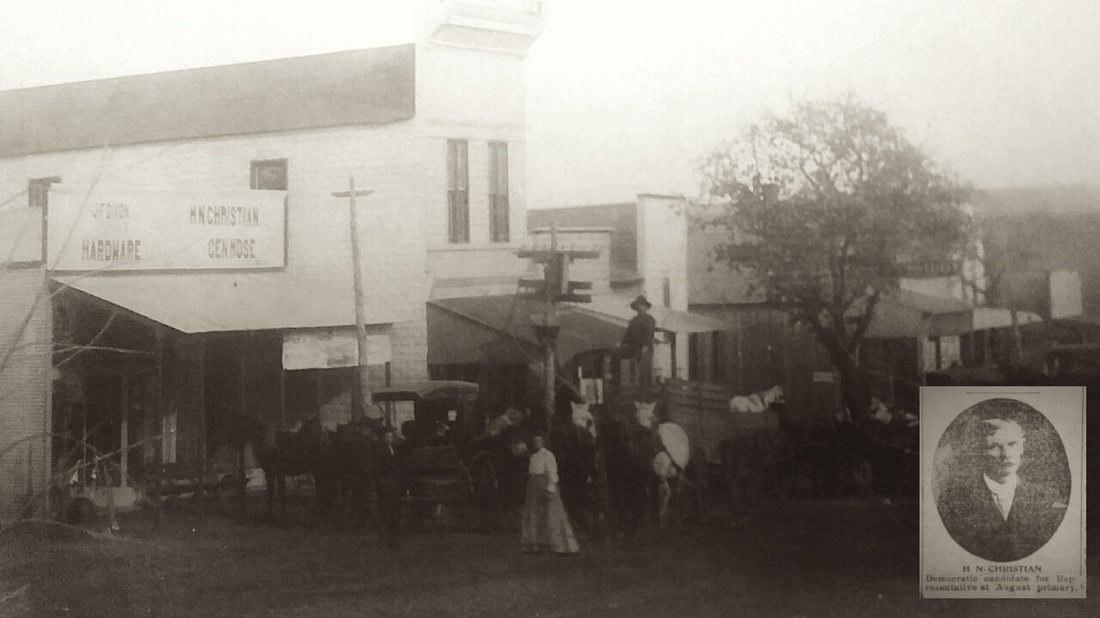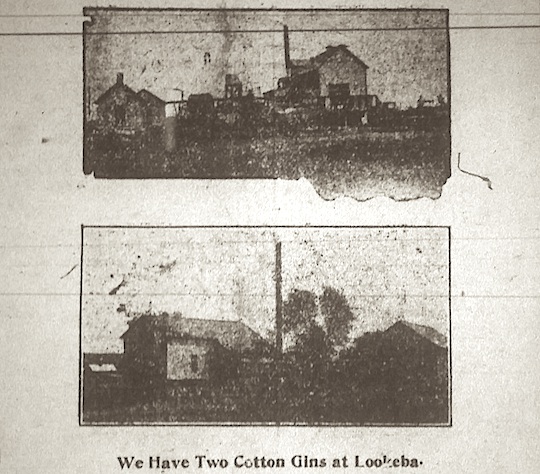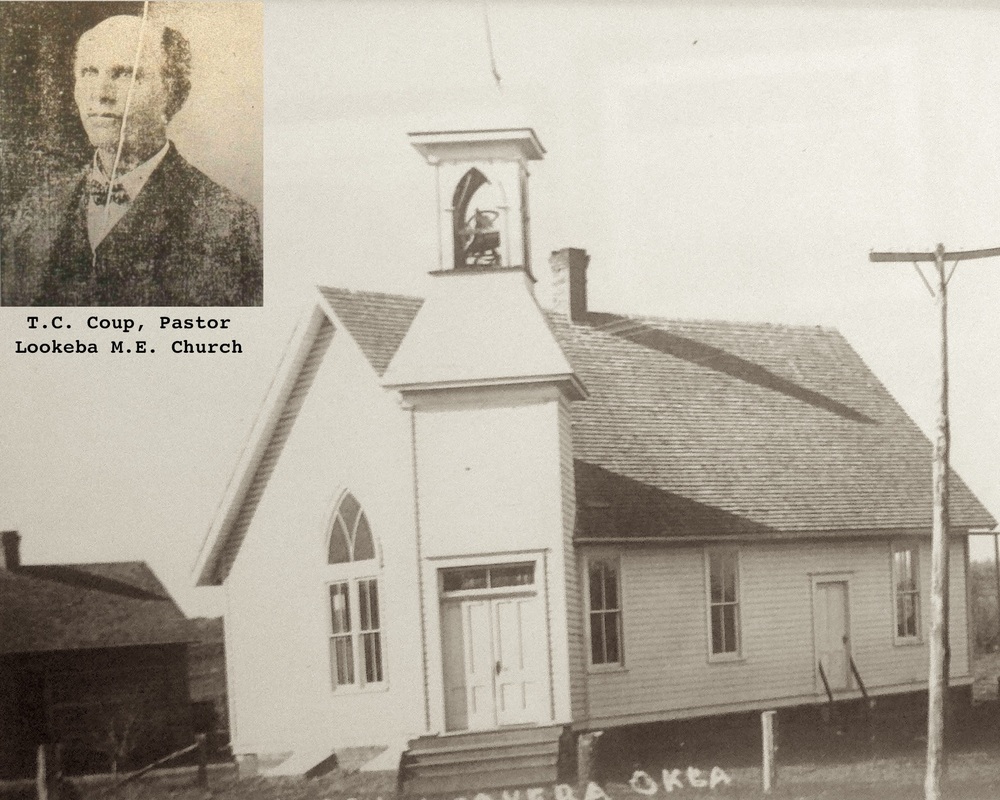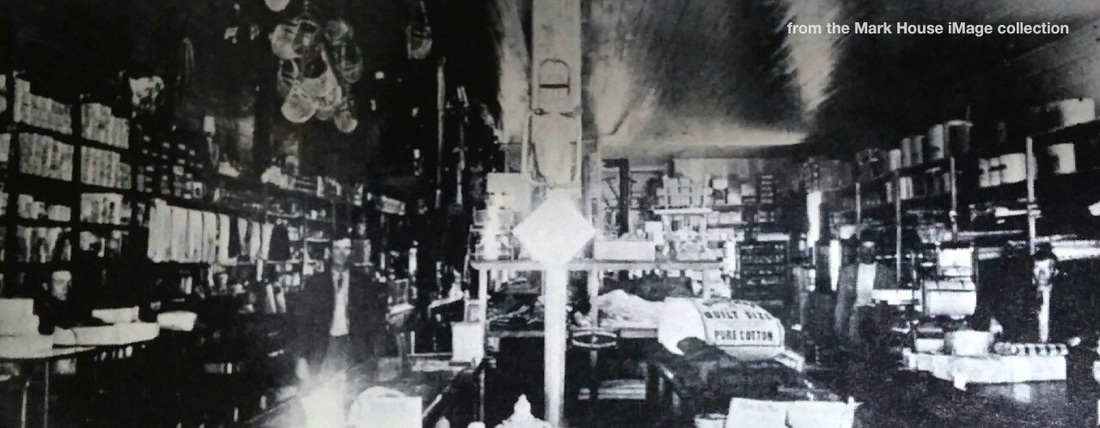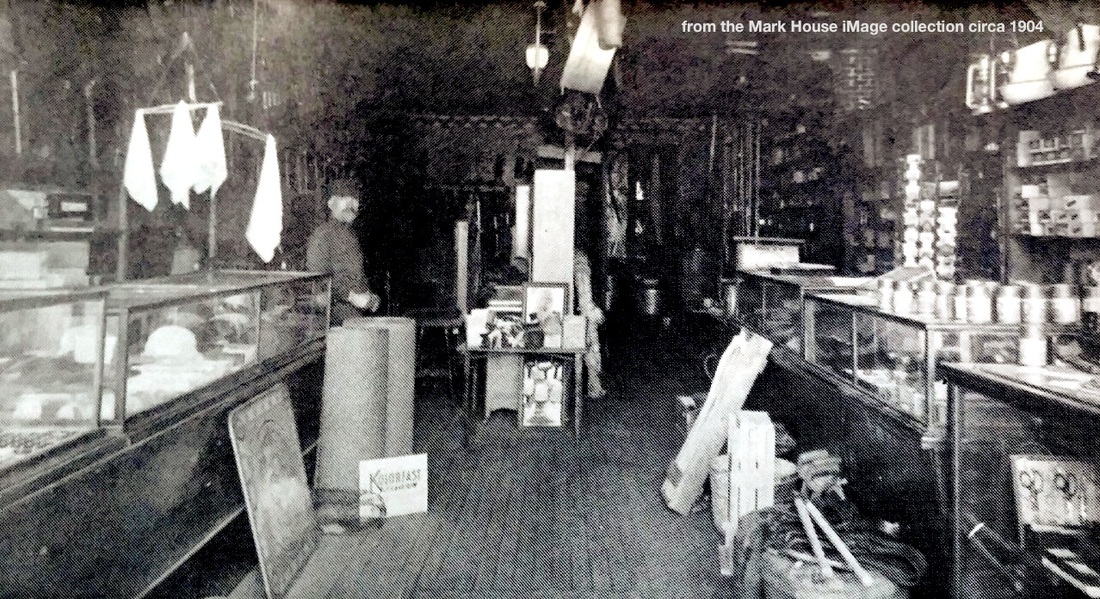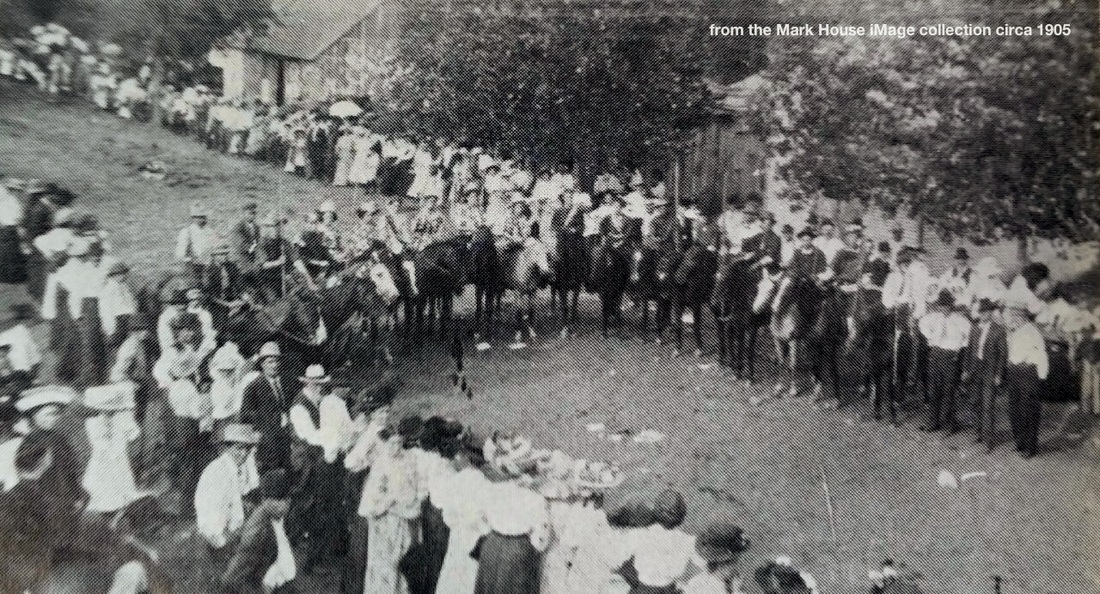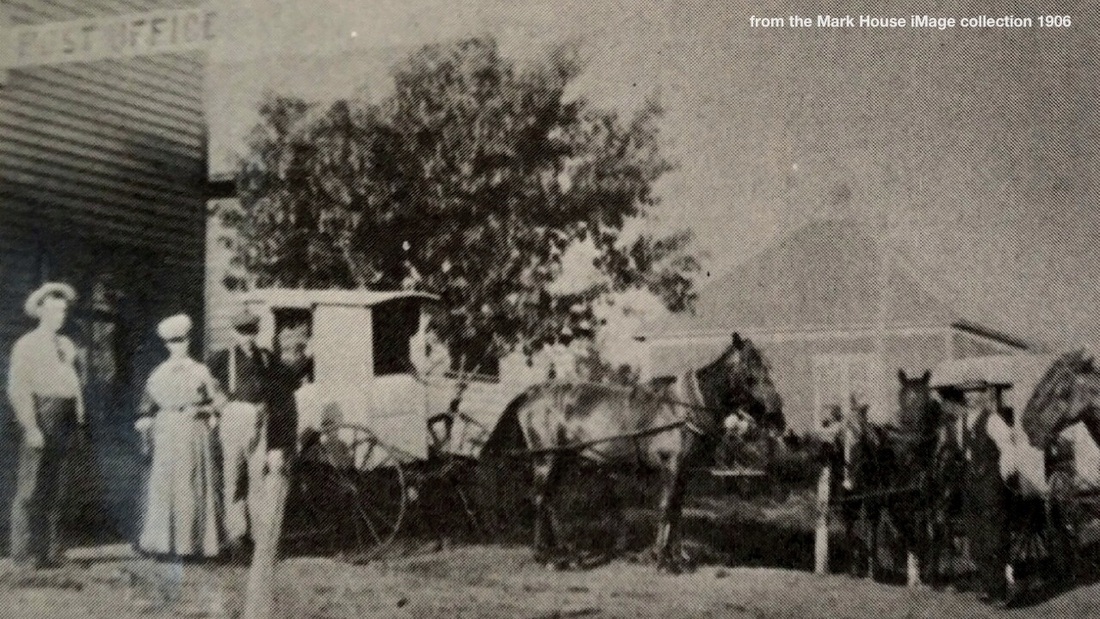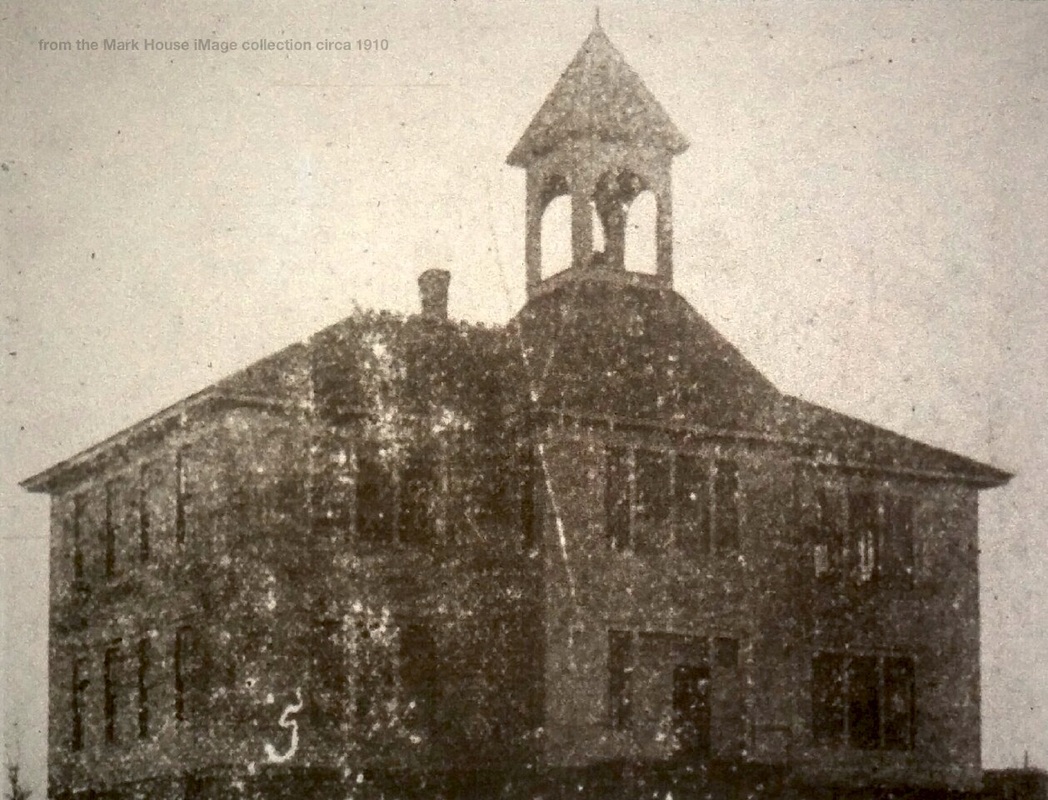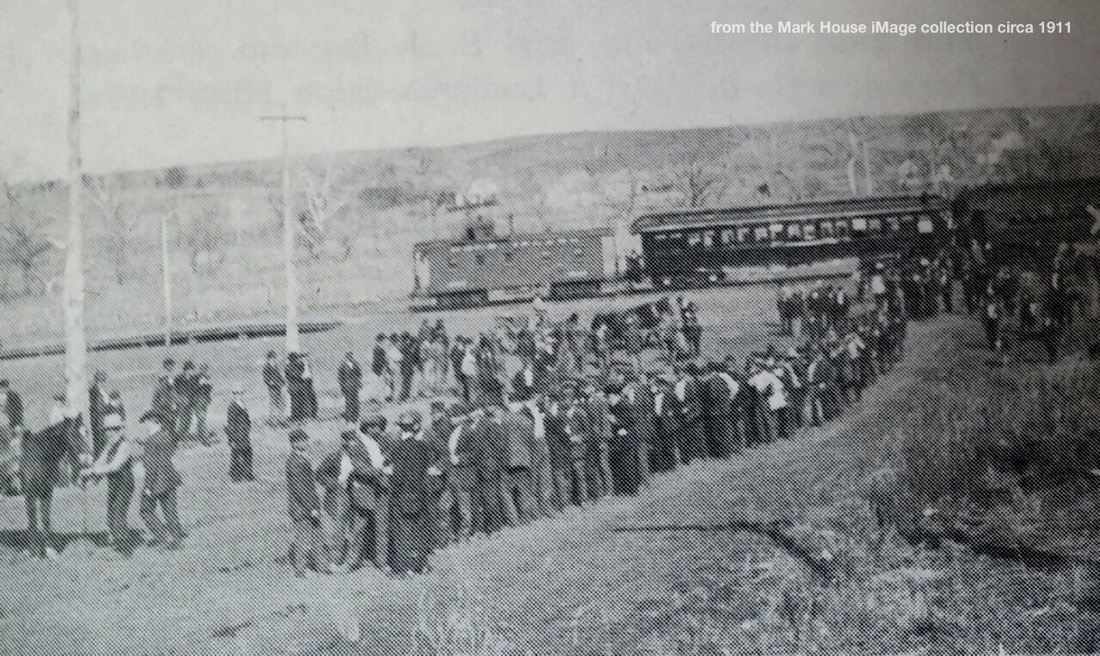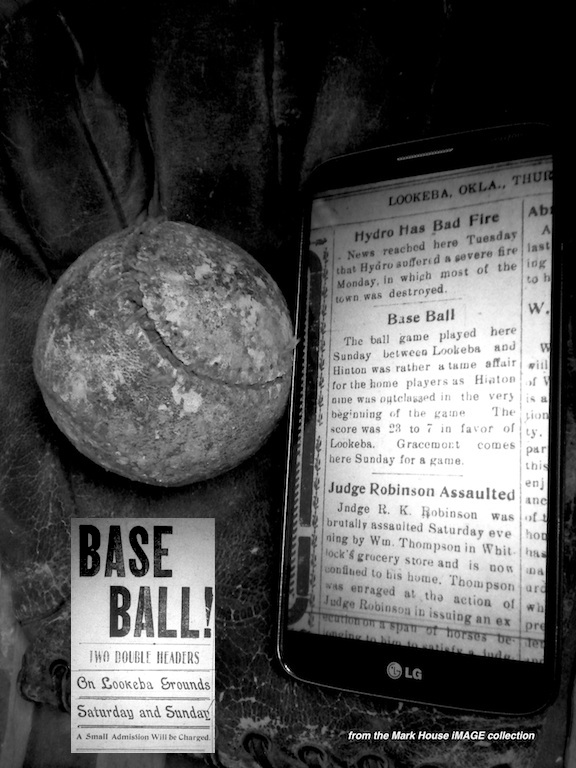CopyWrite 4.12.2014 and 4.12.1914
Born in Anadarko and raised in the rural community of Lookeba, Oklahoma, I've always been proud of my small town Caddo County roots and upbringing. From 1962 to 1976, I belonged to a family of people who lived and worked together towards higher education and brighter futures. As well, we all seemed to watch out for each other in a way that only family would and could care to do. There seemed to be enough issues to eliminate the idea of perfection, but, none more than what normal families would be expected to endure and conquer.
A post game cold soda and a frito chili pie from the concession stand invades my memory when I think of best moments. A personal window of time that seemed to open and close faster than a young kid can swing a little league bat and soak it all in for what it was truly worth.
As life moves on, things can change and those best moments can quickly become memories written about in blog form. Time spent as part of a small community family can become history before your own eyes. A personal and individual history that is fondly remembered and now recognized as a very brief window of life's time within a community's lengthy existence.
With age, I've gained enjoyment from exhuming historical details about things that interest me. Whether it's an old cap, a rare image or my hometown, I've found interesting details are sometimes lurking just beneath a surface that deserves looking underneath with a youthful curiosity.
This philosophy is what brought me to research the true roots of where I came from. It has been such an intriguing adventure of documents, data and images that have fused together in a way that seems interesting enough to share. While everyone, including myself, can make the mistake of thinking time started when they were born, it can be an amazing awakening to look back farther than your mind can imagine and see what can be discovered.
While thumbing through various historical images at an Oklahoma City antique market one day and a few years ago, I ran across some that were most interesting and of my hometown. More recently and while scanning through the archives of Oklahoma's Historical Society, I ran across some interesting and old articles about my hometown. As well, my friend and fellow Lookeba-ite (just made that up) Terri Hulsey has loaned me her mom's 1976 yearbook that is loaded with historical images and information. I believe my attempt to merge these antiquated images with the somewhat distant, rare and time eroded information will be of great interest to some. Maybe to those who come from my hometown or have just traveled through or visited family or friends there at some point within their lifetime?
In search of details past, it was certainly exhilarating to discover a supplement published within the "Lookeba Index" over one hundred (100) years ago on March 12, 1914. Many will be surprised to learn that citizens of Lookeba enjoyed readings of their own newspapers at one point in time. This particular supplement seems to fairly and accurately document exactly what I was looking for. The earliest history of my hometown. This would be the decade of its birth and its youthful existence.
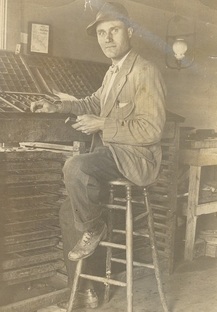 John Dunn, Publisher
John Dunn, Publisher Daisy Dean documents early Lookeba, Oklahoma, history within a published supplement in the March 12, 1914, edition of The Lookeba Index:
"Lookeba - a peculiar name for a town. How it came by that name no one knows certainly. But the majority of its inhabitants seem to believe the origin of the name to have been with Mrs. Loo, who took the first syllables of the names of the 3 townsite holders, Loo, Kelly and Baker, and formed the word Lookeba. But however it came by its name, we know it is Lookeba, and we know that had the townspeople been allowed their choice, we would now be living in Oakdale instead of in Lookeba.
The first settlers came here in the spring of 1901, and a year later the townsite company bought 160 acres of land - eighty from Mr. John Digman, and eighty from Miss Carrie Oplinger. A section line passes through the center forming the main street of the town and another, the boundary to the east. The grassy slopes of four hills form a sheltered valley; black-jack, cottonwood, walnut and elm trees furnished shade: there lies Lookeba.
In the south part of town near the Chickasha gin, there used to stand a little house built of pine. It is not there now, and nothing is left whereby we may know its exact location. That was the home of Miss Carrie Oplinger - and the first house built in Lookeba.
The same spring the townsite was laid out, the farmers graded Rock Island railway, and in the summer the track was laid. On the morning of September 28, 1902, the startled trees echoed for the first time the shrill whistle of the locomotive, and the prairie, so long hidden from civilization, trembled for the first time beneath the form of the "Iron Horse." The mail bags were exchanged. Then it was ???? ???? - but it had left ???? ???? of future development; and the hope of greater prosperity; the opportunity to "make good."
In August, of 1902, a post office had been erected. Prior to that time the mail had been brought from Binger three times each week, and was distributed on sideboards set up on posts in front of Mr. Scholten's tent, in the northeast part of town.
After lengthy discussion it was decided that a schoolhouse should be built. It was not a fine house, nor very large, but it supplied the demand at that time. On December 1902, school opened, with Mr. Otis Russell in charge.
As needful to a community as a school is religion of some form. As was common in small towns a Union Sunday School, and a United Bro(e)throne Church were organized. No church was built, meetings being held in the schoolhouse. Rev. Mr. Johnston was the pastor.
But to bring people into a (?) there must be the promise of better homes, more advantages, some faith in a betterment of their conditions. All depends on the productiveness of the soil, and what hope can these be for a place where irrigation is practically impossible and where it never rains? That seemed to be the proposition here, for from the time the first settlers came, not a drop of rain had fallen. The third of May, 1903 brought the longed-for rain. It began with a mist and ended with a fall of water that spread Sugar Creek all over the bottom land, forcing Mr. Beach's - and others living on low ground to vacate their homes in the middle of the night and wade through water waist deep to dry land. No serious damage was done, and indeed, most people counted it a very fortunate event. Like the Nile, Sugar Creek has overflowed its banks each year since, and like the Nile, it seems to carry new life to the worn out fields. There has never been a complete crop failure in our locality since that flood.
Then the business men began to come in. G.W. Knapp established the first store - "The Summit Grocery," The Maberry-Wise Hardware, and H.N. Christian's Department Stores followed. The cotton yield that fall justified the farmers in establishing the Farmers Gin, and the Nickell and Allen gin was also erected that year. This year 1903, the Methodist Church was organized.
With the increased population came increased production. The land seemed to have been storing its fertility until it should be brought forth by skilled methods of cultivation for the benefit of humanity. Such was the abundance of crops in 1905 that it was decided to hold a street fair. The display showed that with a little care, our part of Oklahoma could easily match or surpass any other. There was not much fruit, as the orchards were not old enough to bear well yet, but what fruit was produced was of excellent quality.
1906 was a year that made every one feel like making each day a Thanksgiving day. The people had become accustomed to this climate, and had learned to meet the conditions of existing here. Crops were especially good, and Lookeba had settled down to be a busy thriving town.
But as yet, not a town - only a settlement. We had no rights as a people, we could not act as a body. What was done had to be done by individuals. In 1907 the town limits were surveyed, and ours became a real miniature city in 1908. The council consisted of W.E. Dean, E. McKinney, and O.M. Hadley. H.E. Warren acted as clerk, I.T. Nickell as treasurer and Clayton Babb as marshal. Of course if the marshal had anything to do, there would be need of a jail, so that fall, in order to protect its rights, Lookeba built a jail - otherwise known as "Clate Babb's Hotel." So far as I know there has been but two lodgers there each for but a night.
In 1909 our school district was consolidated with a strip of country east of here, making our district three miles wide and six miles long. Three wagons were employed to bring the children in from the country. A four room schoolhouse was built in the southwest part of town, the exact center of the district. It stands on a hill where it watches the town and guards it against giving way to the popular feeling of more cotton and less school. Three teachers were employed.
Mr. Ogle established a printing office that spring and printed the first editions of a newspaper all our own - The Lookeba Index, and it is yet the only paper printed especially for the town news.
After a series of Revival meetings Rev. Mr. Dodson organized the Baptist Church.
Lookeba has had in its history but one fire. About midnight Feb, 22, 1910. Mr. Prossers who were living in the hotel at that time, awoke to find their building in flames. The towns people were quickly summoned, but all effort was of no avail, for by two o'clock the hotel, drug store, pool hall and a general department store were in ruins. The block has not yet been wholly rebuilt.
After much argument with the governor, it was decided that some of the prisoners from the state penitentiary should come here and construct a road of about ten miles through Lookeba. In July 1911, one hundred men arrived, and amid a crowd of people who had come to view the "convicts," they journeyed to their camp west of town. The people seemed to think of them of some sort of humanity but hardly as men, as was shown in the amusing incident of one boy who, while talking about the hair(?) chains the prisoners made said that "convicts" always liked red better than any other kind.
The roads were greatly bettered by their work.
The advancement of our town since then has been chiefly in a business way. At present there are twenty business houses in Lookeba kept at work, and two seed houses were established in December, 1913. Last year Lookeba shipped out 362 carloads of products while only 87 were shipped in. Ours has grown from a few farm houses and a post-office, into a real , live, thriving town, well fitted to supply the needs of the people who live here," concluded Daisy Dean.
Although there are so many families and entities not mentioned that helped create and progress the beginning of Lookeba, those mentioned by Daisy Dean in 1914 must have stood out from her reflection upon a most recent past. With her guiding story and the collection of images that match her time frames and subject matters, it is hoped that the beginning of my hometown is captured in a way that is interesting and chronicled well enough for future generations to understand and enjoy.
As a sports history enthusiast, there is only one other thing I would add to this blogumentary of originating days from our past. Base Ball. In the early 1900's, town ball in Oklahoma was quite exciting and most important to communities, small and large, with a hard focus on establishment, progression and survival. The earliest games I've been able to officially document in Caddo County date back to 1904. This with a guess the game was even played previous to that and Lookeba probably being no different. Other than descendants of these great early day Lookeba pioneers, seems that churches, schools, agriculture and baseball are but a few of the common elements surviving and progressing into the early parts of our twenty-first century.

